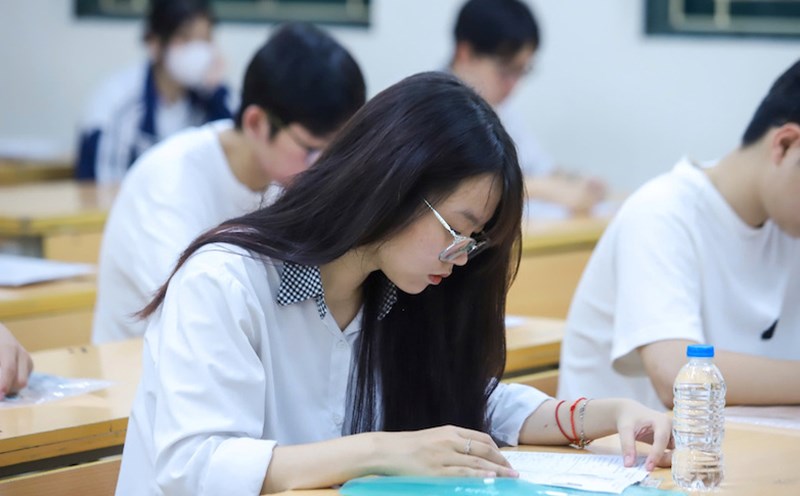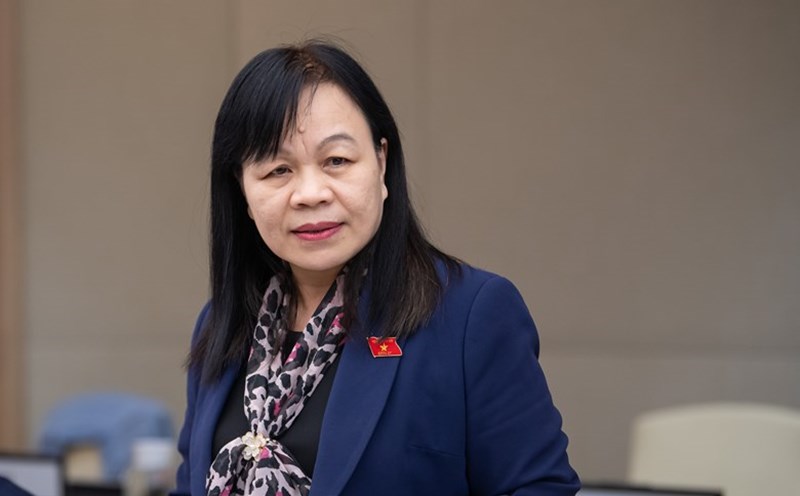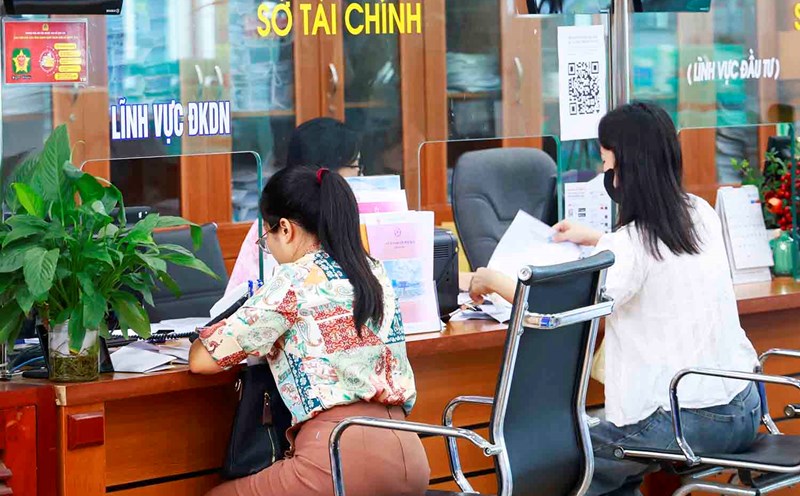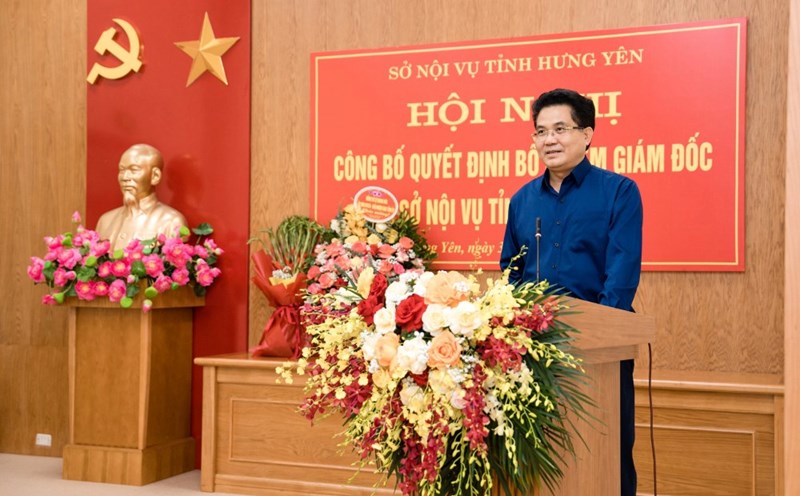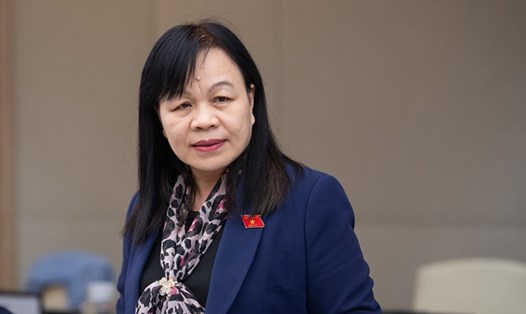For the first time, the concept of co-current lecturer position has appeared
On the morning of October 22, the Minister of Education and Training, authorized by the Prime Minister, presented a Report on 3 projects: Law amending and supplementing a number of articles of the Law on Education; Law on Higher Education (amended); Law on Vocational Education (amended).
The draft Law on Higher Education (amended) consists of 9 chapters and 46 articles, reducing 27 articles compared to the current Law on Higher Education, focusing on the main groups of contents on university governance; training activities; scientific research and innovation; lecturers and learners; quality assurance and appraisal; assets, finance; foreign cooperation and investment; reduction of administrative procedures; decentralization, delegation of authority...
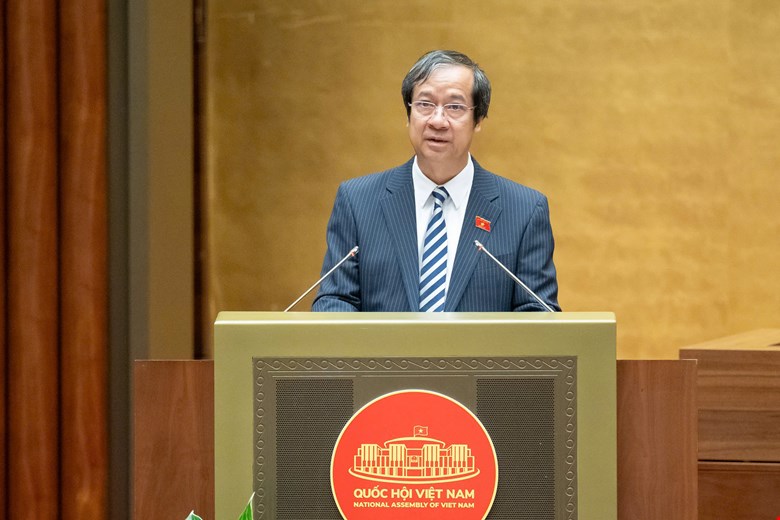
In Article 29 of the Draft regulating the position and title of university lecturer, the Ministry of Education and Training has added the concept of "competent lecturer" in addition to the positions of permanent lecturer, full-time contract lecturer after retirement, and guest lecturer.
According to regulations, physical lecturers are identified as teachers working full-time at higher education institutions.
Ordinary lecturers are civil servants of other agencies and organizations with professional qualifications suitable for the profession or field of training that the higher education institution decides to assign teaching tasks as permanent lecturers for a term of one year or more.
According to the Ministry of Education and Training, the amendment aims to fully reflect the practice of using the teaching staff in autonomous models, clarify the legal basis of lecturers, in accordance with the Law on Teachers, with the framework of civil servant titles, as a basis for managing and evaluating the effectiveness of the teaching staff, etc.
In addition, the Ministry of Education and Training also clearly defines a professor as the highest title of a university lecturer, demonstrating capacity, prestige and a leading role in the training, discovering and creating new knowledge. Associate Professor is the title of associate professor, with in-depth expertise in a specific scientific field.
The draft Law also adds policies for developing excellent lecturers and scientists, specific policies for leading scientists; mechanisms for rewarding and attracting domestic and foreign talents, associated with the effectiveness of research and international publications. According to the explanation of the Ministry of Education and Training, these adjustments and supplements aim to promote the university autonomy of educational institutions with the right to hire excellent lecturers and scientists and institutionalize Resolution 72-NQ/TW of the Politburo on breakthroughs in education and training development.
Regarding the group of university governance issues, the Draft removes the structure of school councils in public higher education institutions to ensure unified management, overcome shortcomings in the relationship between public school councils and the board of directors in recent times, and at the same time strengthen the leadership role of the Party in public higher education institutions.
Strengthening supervision when removing school boards at public facilities
In the review report, Chairman of the Committee for Culture and Society Nguyen Dac Vinh said that the Committee approved the comprehensive amendment of the Law on Higher Education as proposed by the Government.
With the proposal to supplement the regulation on co-organizing lecturers, the Committee basically agreed, but proposed to review to ensure consistency with the provisions of the Law on Science, Technology and Innovation and draft laws on education and training that are in the process of being amended and supplemented.
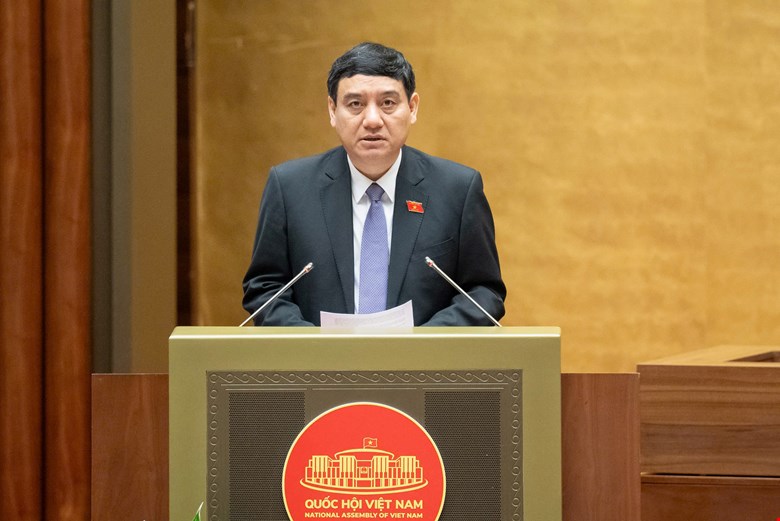
The Committee approved the regulation on the organization and governance of higher education institutions (Article II) and said that the draft Law has institutionalized the spirit of Resolution No. 71-NQ/TW in ensuring full and comprehensive autonomy for higher education institutions regardless of the level of financial autonomy.
However, it is recommended that the Government have a separate document guiding university autonomy; clearly stipulate the level of autonomy based on governance capacity, assessed educational quality and financial capacity of higher education institutions. Clearly stipulate the authority and responsibility of relevant parties in supervising the operation of higher education institutions when the school council's activities in public schools are terminated; clarify the role, position and functions of a number of units in the organizational structure of higher education institutions such as affiliated schools, branches, production facilities, scientific and training councils.

